|
I think it was around 2007 when I became involved in a program for teen parents in a high school in Waterbury, CT, which had the highest rate of teen pregnancy in CT. I first showed up to donate all my baby stuff, including a crib, as I knew I was two-and-done. Marie, the woman who had started the program, described herself as a Catholic feminist. Deeply devoted to her religion, she had a larger-than-life personality as she mothered these children who were having children and urged them to love their babies while finishing their education. Marie and her husband never had children of their own. She showered these teen parents with unconditional love and acceptance, staunchly defended this school-based program designed to support teen parents and keep them in school, against its detractors who insisted it promoted teen pregnancy, and did her best to prevent shaken baby syndrome and stop the multigenerational cycle of teen pregnancy in these kids’ families. She provided a safe haven for teens, but she also provided a source of connection I was yearning for at the time. My mother had died in 2004 and Marie in many ways became a mother figure for me. I went to the program 3 mornings a week and mentored these young moms in parenting, wellness, and I taught them some photography. Some of these girls invited me to their homes, and one even asked me to photograph her birth (I did). I loved going to the program, as I felt like I was making a difference, and being with these kids provided me another type of connection I needed - maybe it was to be with others who felt like misfits, maybe it was to be in a room where there was no hiding from the fact that life is hard. But as the pregnant girls became younger (middle schoolers were now coming in), I felt compelled to do something to prevent girls from heading down this extremely hard path in life. I was training for my first Ironman triathlon. The teen moms were in awe of me. Many couldn’t swim, some were never taught to ride a bike. I thought, if I could help kids become triathletes, they will learn to have a healthy relationship with their body, so not only will they respect themselves more, but they will be more likely to demand respect from others. They will learn about goal-setting, and a side effect of working toward and reaching their goals will be increased self-confidence and self-esteem. They will break out of identity molds they have adopted because these have been passed down from previous generations and are normalized in their community. Yes, I was perhaps overly simplistic and very idealistic. But then one day I came across a small blurb in a Triathlete magazine about a camp in Washington, DC, that was training urban kids for 6 weeks in the summer, for free, to become triathletes. I immediately looked it up online, and long-story-short, the next summer (2010), we started the first ACHIEVE Kids Triathlon program at the YMCA in Waterbury, CT. The first two weeks were, to put it mildly, incredibly difficult. I was the Head Coach and I had hired 4 assistant coaches. I was a certified Triathlon Coach, had finished numerous triathlons including an Ironman (2.4 mile swim, 112 mile bike, 26.2 mile run) and qualified for Nationals a few times. I had 2 kids (at the time ages 6 and 9). But I was grossly unprepared for the task. We had 25 kids register, and they were an extremely diverse group: kids from my suburban town, kids from underserved areas of Waterbury, homeschooled kids. One girl, “Sofia,” age 11, had been in 9 foster homes in the previous 2 years, and didn’t know how to swim and was extremely withdrawn and defensive. “Juan,” age 10, dropped f-bombs freely, and if anyone so much as touched him accidentally in the hallway going from the breakfast room (they got 2 meals a day with us) to the gym, he immediately went into fight mode (physically). The homeschooled kids had never heard an f-bomb, and their parents started pulling me aside at drop-off time, concerned about the language their kids had heard, and concerned that the food we provided (it was provided by the town, same service the schools received) wasn’t healthy enough. I often thought to myself, “Who do I think I am? I have no business doing this! I need a social worker here, how will we ever train these kids to be triathletes??” At the time, I didn’t know about Adverse Childhood Experiences (ACES) and trauma, or about how trauma affects a person’s “sensitivity setting” to perceived threats in their environment. If I had known what I know now, I would have understood that Juan needed to understand why he was being so reactive and aggressive, and taught some breathing and grounding skills to bring his brain back to a more prosocial setting. I asked my friend Lisa, an experiential educator who specialized in working with “at risk” youth, to come in and spend a morning with us in week 2 of the 6-week program. At the end of the morning, she pulled me aside. “Susanne, this is crazy. You really have your work cut out for you. Sorry.” And then, the magic started to happen. The kids started to not only get along, but they fell into organic mentorship relationships. The more confident athletes started helping the weaker ones. Sofia started connecting with some of the other kids, who cheered her on as she finished her first lap across the pool. At some point, I felt I had shifted from “on-the-fly-social-worker” to triathlon coach. My friend Lisa came back on week 6 and she was amazed. She pointed out that Sofia was no longer “a scared little bird” but was focused and self-confident. After 6 weeks we held a USA Triathlon-sanctioned triathlon just for the ACHIEVE kids. I will never forget the image and the feelings as we witnessed all of the kids running with and behind “Marcus,” who had fallen off his bike, gotten pretty banged up, but refused to quit. He was the last official finisher, but he crossed that finish line with all of his fellow athletes. There wasn’t a dry eye in the place. Around this time, I had come across the book The Last Dropout by Bill Milliken. It intrigued me, as it was about a program that prevented kids from dropping out of school. I started reading and couldn’t put it down. As soon as I finished it, I sent the author an email, telling him about the work I was doing in Waterbury with the pregnant teens and the triathlon program, and how much I enjoyed reading his book and found his program, Communities in Schools (CIS) compelling and could they please start one in CT? I didn’t get a response, but two weeks later, my phone rang - it was Bill Milliken himself. Our conversation was the beginning of a wonderful friendship. I have since visited a few CIS schools and support CIS as much as I can. What CIS does, in a nutshell, is they are invited into a school by the superintendent and administrators. They work with the local leaders to identify what the greatest needs are, and then they work to build relationships and connect the children and families with the needed resources. One site I visited, in Las Vegas, had a clinic at the elementary school. A doctor attended to students and their families, and graduate students in a local social workers program met with students every week. A closet was filled with backpacks, so any child who needed it could stop by on Fridays and pick up a backpack for the weekend, full of food that even a kindergartner could prepare. Students who needed tutoring but whose parents were unable to pay for tutoring or get them across town to tutoring, would receive help from tutors who came to the school.
The more I learned about CIS, the more I became convinced that this is what we need. The CIS Site Coordinator (SC) has his/her finger on the pulse of the school. The SC knows which kids are going under the radar, who’s in trouble, and works not only build a relationship with these kids and their families, but also to identify how best to meet their needs with community resources. I have been to numerous CIS events, including the premiere of this wonderful new documentary about CIS, and I hear over and over how “CIS saved my life,” and “I will never again take a teaching job at a non-CIS school.” CIS transforms lives, school culture, and communities. Currently, CIS is in 25 states and D.C. This week, there was another school shooting that hit too close to home. My son is in college at the University of Michigan, and he called us to tell us there was an ongoing shooting situation at Michigan State, an hour away. He has friends at Michigan State, and had made sure they were safe and was getting updates from them on the situation. He found out the next day that one of the 3 students who had been killed (Brian) was a good friend of some of his friends. I found out that one of the other students (Alex) was the daughter of one of the women in a Facebook prayer group I am in. In 2012, when the Sandy Hook Elementary School shooting happened, we lived in the town next door. The devastation of these acts of senseless violence reverberates throughout communities and persists. People react with anger, calling for tighter gun laws, calling for better mental health programs, and pointing to the consequences of lenient DA’s who release criminals. Social media becomes a shouting match of who can condemn and blame the loudest. Rightfully so, and certainly, change needs to occur in all of these areas. But I think of my experiences with ACHIEVE, which is now Race4Chase, in honor of Chase Kowalski, who was a 6-year-old triathlete killed at Sandy Hook Elementary School. Race4Chase is now at 29 locations in a few states, each summer connecting kids ages 6-12, teaching them new athletic and life skills, building bridges across diverse communities. I think of CIS, where its heroic staffers are undoubtedly preventing violence, including suicide, as they build relationships with the misfit kids who have felt unseen, unheard, whose parents may not be able to provide the support they need. We live in an increasingly divided and polarized world, and as I say to many of the kids I work with who struggle with anxiety, depression, eating disorders, self-harm, aggression, neurodiversity, etc. - it is no wonder they aren’t feeling so great about the world, their future or themselves. “It is no measure of health to be well-adjusted to a profoundly sick society.”Jiddu Krishnamurti As someone who is hopeful, sees opportunity in crises, and embraces a growth mindset, I look at where we are today with all of these school shootings and the constant reports about declining mental health in our canaries in the coal mine (kids), and I immediately become solution-focused. I believe that if we had CIS in every community, we would cut down on so many of the issues we are seeing today in kids, families and communities. I also believe that if we had Race4Chase in every community, and even better, a version of it that was not just a summer program, but that was connected to schools and year-round, we would have more physically active kids, who experience the joy of moving our bodies the way we were created to move, and engaged in helping others work toward their goals. A solution to many of our social problems does not require legislation, a ton of funding, a belief in any ideology or politics. It does not really require reinventing the wheel. Expand these existing programs, maybe even connect them - and empower kids and families and communities to create much-needed change.
2 Comments
When I got back from a 3-mile run in frigid temperatures with my dog, my husband asked how it was. “Freezing,” I replied as I unhooked myself from my dog’s leash and blew my nose. “I’m headed back out for a bit.” My husband looked at me and said, “But you just said it was freezing.” We both know I prefer warm weather. “Why are you going back out?” I thought about it. My running journey has evolved over the years. As a college student I would run a mile or 2 to feel better about myself and prevent (further) weight gain. In my early 20s I suddenly shifted from hating running, which I saw as a necessary evil, to an activity I enjoyed sharing with others and in beautiful environments, when I started running with a coworker in Washington, DC. Eventually I started participating in 10k races and the training gave my workout routines structure, and I enjoyed the sense of accomplishment of reaching goals and crossing finish lines with others who shared a similar mindset. I started participating in triathlons as a way to have more variety in my workouts and to satisfy my curiosity about this multisport. Eventually, as I felt more encouraged by what my body could do, and I felt connected with a community of people who endorsed a healthy lifestyle, I pushed further and further, finishing my first Ironman triathlon a month after my 40th birthday. It never ceased to amaze me how I went from being someone who in high school had the nickname “Tortuga” (Turtle) due to my performance at my first and last track meet, to being a mom who had racked up dozens of medals and trophies, for finishing and even placing in the top 3 places (age group and even a couple overall) in running and multisport events.
When I contemplated whether I was going to head back out after dropping off the dog, or staying justifiably satisfied with my 3 mile run and sinking into a hot epsom salt bath, the reason I opted to head back out was not because I had to prove anything. I was not thinking of burning calories or achieving a certain weight or shape, or how my mileage stacked up against anyone else’s that day. What sent me back out was my belief that if I delay the comfort of the hot bath, and instead face discomfort for another 20 minutes, I am building a habit. Next time I am in a situation where I am tempted to avoid discomfort, I will know that I am someone who pushes through discomfort. I know all too well through my work as a coach, how problematic it can be when we become addicted to comfort and avoid situations that challenge us mentally, emotionally and physically. Our culture is addicted to comfort, and we receive messages every day that enable us to choose what is easy and popular, but ultimately, comes at a cost. The person I am today is a result of the choices I have made consistently over the last 5, 10, 20 years. I have developed a habit of thinking of this when I am making choices every day. These are the questions I ask myself: Just because I can, does it mean I should? Is this choice building a habit I want? If it’s true that “how I do one thing is how I do everything” - what does this choice mean about how I do other things? Will my 20-years-from-now-self thank my current self for the choice I am making today? And, so, I headed back out into the cold. The most important choice you will ever make, I tell my kids, is whom you marry. Fortunately, in 1997 I made the best choice as I married a Puerto Rican and he is fabulous. I won't list all the reasons for this bold statement, just one of them: he grew up in Puerto Rico and he takes me and the kids there pretty regularly. Anyone who follows me on Instagram or Facebook and gets my updates in their feed will attest to the fact that based on my photos, PR is truly the most amazing place in the world. I have never been to Hawaii because we live on the East Coast in the US and I find no reason to go all that way when I can be in PR after a 3.5 hour flight. No jet lag. I get asked, based on my posts, for my travel recommendations in PR, so I figured I'd pop it all into this blogpost, so I don't have to keep cobbling together messages for my friends planning their adventure. Here you go. We are partial to the Rincon area, which is about 2-2.5 hours west of San Juan. I do recommend spending 1-2 nights in San Juan, depending on when you land. Visit Old San Juan and visit El Yunque, the rainforest, about an hour east of San Juan. In Rincon, I suggest getting an AirBnB. It's the chill, surfer area - a worldwide mecca for surfers. Great beaches! And a cute little downtown area with great restaurants. I also recommend driving to the southwest corner and going to the bioluminescent bay in La Parguera, and also checking out the lighthouse in Cabo Rojo - there is a beach there called Playa Sucia that is really beautiful too. Check out some of my pictures below, with captions showing where they are. And make sure you try the mofongo, a typical dish that is full of delicious carbs. If you're like me and don't drink alcohol, many places now have Heineken Zero, or ask for a Perrier if you prefer seltzer. I'll add to this blog as I go, but if you have specific questions feel free to send me a message. Here are some links I recommend checking out:
Eco Water Adventure - we took an amazing tour on SeaDoos, of the cays all around La Parguera. What a great adventure, worth every penny! Faro Los Moros in Cabo Rojo - this is always a must on each trip. The views from the cliff up by the lighthouse are stunning, and the hike down to Playa Sucia, especially in the trails hugging the shoreline, is beautiful. Best Beaches in Rincon - Rincon is the hippy part of PR, with lots of US and international surfers who went there on vacation and basically never went back home. (I know, tempting!). This is a pretty good list of the best beaches. 10 Reasons to Celebrate PR in 2022 - a pretty good overview. A dear friend of mine, who is really adorable and awesome but tends to pack her schedule and constantly be doing minimum 3 things at once, really needed yoga. Well, she didn’t know she needed it but I knew it. I had been practicing yoga for a couple of years, not regularly but enough to know this was an awesome thing to be doing. And I knew this friend would love it, as would her tightly wound body and racing brain. The problem was, the message she was getting from many in her Christian faith was (and still is), that yoga is “bad” for Christians because of its roots in Eastern religions and philosophies. She told me this and I was really surprised, so I googled it and sure enough, yoga is considered a threat to Christian beliefs.
A part of me thought this was ridiculous! But a part of me understood the resistance. I have been in yoga classes where the room was decorated with Hindu relics, incense was burning, the instructor wreaked of patchouli oil (I can’t stand the smell), the cues were mostly in Sanskrit (part of me would be proud when I knew what the heck it meant, part of me would roll her eyes at the elitism I perceived- just say chair pose, OK?) I understood where my friend’s resistance came from, as in her milieu, it was just assumed that yoga was not a healthy endeavor for their faith, and anyway, there were practitioners who taught a Christian-based practice. But I really wanted my friend, and her fellow resisters, to experience a practice that would challenge them physically and give them some of the other mental benefits that I had come to enjoy. So even though I was not certified to teach at the time, I asked her to invite some of her fellow yoga-curious-but-resistant friends, and I would teach them in her living room. This eventually led to someone’s basement as we needed more space, then my becoming certified, then teaching in karate studios, gyms, a spa, a yoga studio, a university (Yale Men’s Basketball team), a high school lacrosse team, two addiction treatment centers, and a corporate wellness center. Recently, someone asked me where I prefer teaching, and I answered, “wherever people are who think they are too stiff/hyper/impatient/fat/old/unhealthy/Christian etc. for yoga.” There is something fascinating about being in the middle. It feels natural to be curious about different perspectives. If I am completely attached to an ideology or a perspective, I am more easily threatened by another one. I used to be envious of people who were staunchly attached to a belief or perspective. I thought, gosh, how much simpler life must be if you don’t have to consider different viewpoints, you don’t have to take context into account, and wonder if you may be wrong? Black-and-white thinking seemed really appealing. But it also felt, and still feels, like a cop-out. It would be so simple to declare, for example, that everybody who even today is smoking cigarettes is a totally irresponsible idiot who doesn’t care about their health or that of their loved ones, doesn’t care how their health issues affect our insurance premiums, and all of the other ways their nicotine addiction affects our society. The same could be said for people who regularly drink soda and eat processed food, avoid vegetables, are sedentary, etc. It is so easy to be judgmental and make assumptions. I would even argue it is normal, and human. Our brains are designed to look for and be drawn to what feels familiar, and what aligns with our existing belief system, and to mistrust the unfamiliar and what does not confirm what we believe. Today, though, we are facing a huge task. We are so tired of all of the information that is bombarding us, and our willingness to do the work to sift through the noise, the misinformation, the agenda-driven media, is often depleted. We do not have the bandwidth to do so, or we simply do not prioritize it. So we do what is simplest - we consume what is sent our way by our friends and the media sources we trust. The problem with this is we are often like fish in the ocean, who do not know they are in the ocean, because they have never left it. We are smart, we listen, watch, read, discuss - but we don’t often pause to consider what is normalized in our safe spaces. We have all heard the alarming statistics of how much mental health has declined among our young people, the academic slide, and how much they are struggling to focus and behave in school. If you’ve read my blog in the past, you know that I believe our kids are like the canaries in the coal mine, and I am always curious about how they are behaving and thinking, as they give us important clues as to levels of harmony and health in their systems (internal and external). When our kids are acting in ways that are not healthy, I think it’s a good indicator that something that has been normalized in their environment may need to be addressed. And this starts with us (the adults). What is normalized for us? Are we being discerning? Particularly in these areas:
I truly hope that this blogpost was helpful. As I write this, I am cognizant of the tension and exhaustion around me, with people accusing each other of being white supremacists, of not caring about teachers, of being irresponsible individualists, of being bigots and transphobes, of using identity politics for ulterior motives, of wanting to control others. There is certainly plenty of information out there to confirm all of the above. Sometimes I feel completely overwhelmed, as I do some deep-dives into controversial subjects and curiously listen to and read some of the media that make the “other side” recoil. There really is a lot of absurd (to put it nicely) stuff going on in the world right now, and I often feel like grown adults are being a bunch of kindergartners. Sigh. But this is why it’s especially important to dip our toe outside our safe bubble and be curious about what the “other side” is thinking. If an issue, and the people on the other side of the issue from me, seem simple and bad, I make myself remember, they are human, with the human need and desire to be safe and feel loved. I don’t want to be like the people who are missing out on the amazing benefits of yoga, because I had adopted a belief without being curious about what I could learn from it, and how I may become a better human. May you be safe. May you be healthy. May you be happy. May you live with ease. “It’s too cold,” is what I hear EVERY day, when people sheepishly tell me they haven’t worked out in a while. “I know I should be exercising, but I just can’t make myself do it,” is another frequent one. As I write this, we are two weeks into the new year, and in the Washington, DC area the snow has mostly melted from one big storm and in two days we are getting another one. We are about two years into the pandemic, and I don’t need to list all of the ways this has disrupted even the most committed health warrior’s routine and motivation. So when I hear these statements from clients and friends, I totally get it. Yes, it’s cold out. Yes, it sucks working out with a mask, so I wouldn’t go to the gym either. Yes, it feels like this whole pandemic BLAH-ness is never-ending, especially with all of the fear-based messaging we are bombarded with by mainstream media. Of course our energy levels and inner drive are being affected by the collective doom-and-gloom! I totally get it! I was thinking about all of this while running with Bruno (my chocolate lab) this morning. He LOVES our almost-daily 3 mile runs. He knows exactly when there is a possibility of his going for a run, based on little things in my routine (a sip of my energy/immunity drink, my appearance in running tights, my taking one step toward the location of my Hoka running shoes…). Any of these actions send him into an expectant tizzy, where he runs at full speed to the top of the steps that lead to the garage. On the days that there is, sadly, no run in our future, I feel like the worst Dog Mom alive, as I have to tell him, sorry, but stay, and I’ll be back soon. Three days ago, after a two week hiatus from running, I finally took him out. He hadn’t been running for those two weeks, because he had a skin infection and I couldn’t put his collar on him, so I decided to become reacquainted with my Peloton bike. After all - it was cold, potentially icy, so I may as well just workout indoors, was my justification. During those two weeks poor Bruno was whiny, and followed me like a shadow. It was really cute but also annoying. I work from home, and there were a few times when I had to apologize to clients and explain that if they heard some whining, it was my dog, not my stomach. I thought maybe he was still adjusting after our having been away for two weeks and leaving him with his dog sitter. Did this increase his separation anxiety, I wondered? Three days ago I felt this CRAVING for a run outside, in the fresh air. I do like my Peloton, and am deeply grateful to have this option of a convenient, effective, rewarding workout. But it’s just not the same as being outdoors, in the elements, feeling the cold air (or warm sun in other seasons), engaging with nature. I recognized I was becoming wimpy - using the cold as an excuse not to go outside - and I did not want to get used to having this justification. So I took my absolutely THRILLED dog for a three mile run. And afterwards, I noticed how good I felt. It was a different post-workout feeling than when I do indoor workouts. Mostly mentally - I felt more invigorated, energized, alive. My coaching sessions afterwards felt more effective and focused than on days I hadn’t been outside. This morning, as Bruno and I went up and down the local hills for half an hour, I reflected on how I haven’t heard him whine a single time since we restarted our routine three days ago. And he has no longer been clingy. Yesterday, when I finished coaching around 6pm, I went downstairs and realized I hadn’t seen him all day, as he had been contentedly chilling in the kitchen. We are all like Bruno. We NEED fresh air, exercise, and the regular poops that come along with this. Our brain and other organs and systems are not designed to be indoors and sedentary all day. Bruno whines and clings. Maybe your version of this malaise is to be cranky, depressed, glued to the news and social media, unable to sleep or sleeping too much, feeling like everything is hopeless, eating although you’re not physically hungry, needing weed or wine to unwind, trying to control the people around you or on social media. In my hundreds of conversations with coaching clients over the years, I have often heard of people finally deciding to change because they are “sick and tired of feeling sick and tired,” or they were given the “gift of desperation.” Getting out of our comfort zone is hard. As humans, we are innately motivated to seek pleasure and avoid discomfort. So choosing to leave the plushy comfort of our heated (or air-conditioned) homes, to engage with whatever uncomfortable conditions lie outside our door, can take a massive amount of willpower. Like I said, I get it. When we lived in CT for 16 years, I recognized that cold winters were an annual occurrence, so I had a choice: bitch about it and be miserable, or embrace it. I chose the latter, and got my kids into ice skating and skiing. I got gear that would lessen the discomfort of being outdoors for a 10 degree Fahrenheit run. I have Reynaud’s Syndrome, so being outside in winter means I will experience a high level of discomfort, even when I’m done, in my toes and my fingers. It is what it is. Bruno would probably tell you, and I fully agree - there is no such day as a bad day to go outside for a run or a walk, as long as you get the gear (layers, hat, gloves, etc.). You probably have friends and family who “cosign your bullshit” (help you justify staying in your comfort zone), so hopefully now you have read this post, and seen Bruno’s photo, you can replace their voices (remember, they want you to stay in your comfort zone, so you don’t challenge them to change too) with a nudge to move, preferably outside. Just do five minutes - but do it every day. I guarantee you that after 30 days (or less) of small, consistent effort, you will feel noticeably better. And here's a bonus tip - check out this Mel Robbins hack on how to quit your whining and just do the thing you keep procrastinating: If you feel stuck - there is a part of you that benefits from feeling stuck. When you don't do the things you know you need to do to be well and happy and at peace, it's not because you lack self-discipline. It's because you get something out of staying stuck. You don't have to risk failure to follow through, or making yet another mistake, or being rejected. It's like having an abusive boyfriend, whom you know you should dump, but you prefer bad company to being alone. Because it may be crappy but at least it's familiar. And this story you have built in your head and that is going on and on in a continual loop, serves you. It gives you identity, something to focus on, something that keeps you from getting too close to others.
Once you recognize this, you start to see that you have choices. You can choose to pay attention. To the thoughts. The patterns. You can start to be curious. You ask, how is this "sabotaging" behavior actually serving me? What am I getting from it? You can thank the part of you that is doing this, making these choices, as in reality this part is truly trying to protect you. Maybe getting fit will bring attention to you that a part of you is afraid of; maybe looking for a new job or taking on a new project stresses out the part of you that wants to protect you from rejection or being found out as a "fraud." Maybe giving up the lousy lover or friend makes the part of you that is scared of loneliness want to crawl into a cave. Trust me - as counterproductive as they may seem, these parts really are just trying to protect you. Somewhere along the line, these parts developed tools to cope with things that felt beyond your control. And they worked - because you are here, reading this. It might be time to update the system. A little "how's it working for you?" moment of honest self-reflection- and then, when you're ready, you start the system update. Slowly. Tiny steps, because you don't want to crash the system. Start by paying attention. Being curious. Breathing, especially deep exhales. Keep going. We live in a rushed world of instant gratification, but this is something that takes time, effort, small, consistent steps. It took years to get to where you are today, and when you look ahead - the time will pass anyway, so you may as well keep taking those small, curious, compassionate steps, one day at a time. My favorite running buddy just got back from three weeks of bootcamp and for the fifth day in a row, we were running three miles and I was reinforcing what he had learned. Bruno is my two-year-old labrador retriever, whom I am training to be a therapy dog to help me in my work as a trauma-informed coach, yoga instructor and therapist. Because I believe the body needs to be part of any wellness and recovery and prevention program, my furry partner needs to be in good shape, and be totally focused whether we are in a busy school or running on a trail. So while we run, I am using the techniques the dog trainers taught us to correct undesirable behaviors and reinforce the good stuff.
On today’s run, as I was picking up his poop, I caught sight of a fox up ahead. This was a great opportunity to teach Bruno to stay seated and not bark, and when I was ready, to heel, and not pull me toward the now departed fox. He did great. And I started thinking about how the trainer had discussed dog psychology with me. “It’s very simple: we correct undesirable behavior and reward good behavior.” So what that looks like is if he pulls, or doesn’t come when summoned, he will hear a tone on his e-collar. If that doesn’t work, the next correction is he will feel a buzz, like the tens my chiropractor applies to my inflamed SI joint area in my lower back. In the week since he returned from the training, I have rarely had to apply the buzz. He gets it, no discussion or negotiation - he is a dog. Black-or-white. Good or bad. Period. So I started to think about how in many ways, the way things are with humans right now has kind of devolved into a culture where if we pull a little, we are immediately buzzed (and not starting at the lower settings of the e-collar). I have seen this happening over the last several years. Four years ago, I was part of a friend group that was quite tight. We ran together, broke bread together, prayed and cried and laughed. We did not share the same views on politics and religion, our skin color varied. But we shared a faith, and the belief that love is why we are here, and we had honest conversations that in spite of our differences were able to happen because of the faith and the love thing. Until one day, one of the women sent out an email to us and others that basically said, this is how I stand on xyz issues and if you do not profess to believe the same, you are rejecting me, and we cannot be friends. End of discussion. This was disconcerting to say the least, as there was zero opportunity or offer to talk about it. I remember receiving the email and being shocked, that someone who very publicly talks about love and tolerance, essentially was saying, these concepts come with conditions, and I get to decide what those are. I was dumbfounded. I did not respond for a bit, and when I did, I said something like, can we talk? This concerns me. Her response was dismissive, as she clearly had made her mind up about me and had no desire to actually talk with me - listen to me - and perhaps have some of her assumptions about me challenged (I knew that our views were very similar, but how I chose to live them and express them was different from hers for very understandable reasons, which I think she would have understood if we had met to talk). To her, things boiled down to, you are either enthusiastically and loudly with me, or you are against me. End of story. I work in mental health. I am currently working toward another Master’s (Clinical Mental Health Counseling) in a program that has a strong focus on social justice, which is why I chose it. My life right now is extremely busy, between my schoolwork, my part-time job as a wellness coach for a medical group, my self-care, which I take seriously and is non-negotiable, and a parenting gig that reminds me to stay humble and not take life too seriously. I love it all. In my schoolwork, I am learning all kinds of theories and skills to help me be an effective, multiculturally competent counselor. In my coaching, I apply much of what I am learning in school, as well as all of the other certifications and experience I have acquired over the decades, as I help patients back off the precipice of dis-ease by building healthy habits, hopefully for the long-term. Some of my clients are 22-year-old college students, some of them are 75-year-old great-grandmothers, some are lawyers, doctors, manual laborers. I am the bilingual coach so I get to coach the clients who prefer to speak Spanish. Some clients have gym memberships and dog walkers, while others use a walker and live in a small space with several generations. I have learned that I cannot assume that someone has food in their fridge - or cooking utensils, for that matter. I meet each person where they are, alert to my biases, aware that I do not know what I do not know, so I need to listen. I am afraid that this desire and ability to listen has disappeared in our general culture. It alarms me and it makes me really sad. My son, a high school junior, was in a class (focused on social emotional learning) this past week where a presentation was given on microaggressions. The prompt on the screen (he is still 100% remote, since March 2020) said, “you imitate Southern or British or any other kind of accents.” If you said yes, you were accused of a microaggression. The equivalent of an e-collar buzz. Another prompt on the screen was, “your Asian classmates are really good at math.” Yes=microaggression=buzz. My son and I had a long conversation, as we talked about the fact that the delivery of this online lesson was devoid of any opportunity for discussion. There was no opportunity for him to say, my mother and grandfather are British, we love British shows, and we have fun at home breaking into British accents. There is no room for context. “Latinos are great dancers.” Microaggression. No chance to say, I am half Puerto Rican, we love dancing in our family, especially to regetón, and in my worldview, formed by my experience growing up latino, this does not feel untrue or disrespectful. As a friend said when we were talking about this, when everything is a “harm” then nothing is a harm. If I were to correct Bruno every single time he did something, he would not understand what is right or wrong, or why. So I am selective and clear about commands and what to correct and reinforce. We do this with dogs, ask any dog trainer. Are we creating a culture now where there is no room for discussion about context, or listening to where someone else is coming from, that everything outside of a certain point of view or language is a microaggression or worse? As someone who works hard to put myself in someone else’s shoes, and who believes that most of us are truly doing the best we can, and that we cannot possibly truly know what someone else’s experience in life has been or is right now, so we really do need to as much as possible dig deep and move with grace and compassion - I am concerned by how much censorship, shaming and intolerance I see today. I have worked with veterans, active duty military, first responders and members of law enforcement for a few years. The men and women I have had the privilege of working with in my yoga classes and in behavioral health treatment centers have - every single one of them - impressed me with their sense of civic duty, their desire to help keep other human beings safe and well, and just their decency. Of course, just like the rest of us, they have made mistakes, and they have suffered greatly. They are human. I was chatting a couple of days ago with a classmate of mine whose husband is a veteran and a police officer. She is white, grew up in very humble circumstances, in a very diverse area, and did not stop to consider people's skin color, just their shared humanity. She shared how hard it has been for her, to be in a counseling program where everywhere you turn you hear about racism and injustice and police brutality, while being married to a man who sacrificed everything for his country’s citizens and residents, no matter what color they are, and now in his job in law enforcement he gets 3am calls from black grandmothers saying they are afraid of their grandsons. Basically, he is an amazing human being doing amazing work, and she is experiencing a very stressful incongruence. She knows there are “bad cops” out there but as she pointed out, there are some really bad doctors out there but we don’t go hating on the medical profession and calling for them to be defunded. In fact, there are some truly monstruous swim and gymnastics coaches out there, but we do not seem to be throwing their colleagues as a whole under the cancel bus. My friend pointed out how when her husband returned from deployment as a Marine, he was given a month of basic recovery. Not nearly enough, of course - but better than police officers get right now. Every day they are dealing with traumatic situations (first responders too) and they end their shift, go home, get back at it the next day. So much needs to happen to support our public servants - and yet this is never mentioned in our school. Just like on social media and in our culture right now in general, there is a sense that if you hint at wanting to discuss the “blue” side, you will get zapped - because there is no room for considering context, other viewpoints, or the fact that nobody holds the market share on trauma. I can tell you from my experience working in behavioral treatment centers, that every single public servant I worked with had layers of trauma, usually stemming from childhood. I don't think I have ever heard this point made anywhere, including in the multiple "community conversations" at school regarding social justice issues. Brene Brown often talks about the danger in dehumanizing people(s) and yet that is exactly what is going on - often by the very people who complain about dehumanization. (If you feel like the world is going crazy, I hear you!). So, this is something I have been grappling with for a while, especially as I consider how I can be most helpful. I think about this as I parent my high schooler and college student, as I move through my professional and school circles and roles, and as I consider how I will apply my counseling degree. I have often said to my kids, if everyone is saying or doing something, it is probably a stupid idea. At the very least, question it. Who stands to gain from it? Who loses out from it? And does it sit well with your values? Be discerning. Don’t share something without learning who benefits, and who is hurt by, the story. Investigate the facts. Most of all, be kind, and at the very least, or maybe this is the most important and hardest part - listen. We were sitting on the most beautiful beach you could ever imagine. White, fluffy sand, clear, turquoise waters, no one else around, just us and our young children. My kids were 5 and 8, she had a crawling baby to keep up with and another one on the way. She turned to me and sighed. “I’m so sick of living here. I miss [insert anywhere else]. It’s so boring here.” At the time, what was going through my mind was, omigosh, you are crazy! This is paradise! Life here is calm, relaxed, and yes, there are the inconveniences of island-living but gosh, you have no idea how spoiled you are! I kept these thoughts to myself though, because they were not helpful for obvious reasons. Instead, I offered, “You’re in a hard stage of life right now. You have a toddler, you’re carrying around a huge watermelon in your belly, your husband works a ton of hours. Do you think maybe your feelings are pretty normal considering this stage in life? And maybe it would be hard no matter where you are?” I can’t remember what she replied, but it was probably NOT “Wow, you are so right! I just need to shift my mindset, take ownership of the things I can change and have a more positive attitude about stuff, and remind myself that this too shall pass!” This morning, a friend (I will call her Ruth) was sharing how challenging she finds some people in her life, who would fall into the Eeyore personality category. You know the type, they are generally low energy, and can find the negative in absolutely any situation or interaction. This particular person Ruth was telling me about is having a hard time right now with The Shitshow (political polarization, etc.). This woman claims that she has had to withdraw from certain social groups because she has felt others in the groups are antagonistic and clearly not aligned with her own politics etc, so she feels uncomfortable and unwelcome. She went on to say that she and her husband felt the same in the last place they had lived and she was hoping they had left that behind, so she was upset things were the same in their new hometown. Immediately I thought back to my friend back on the island, as well as to other times in my own life. When my firstborn was 2 months old, we moved from a metropolitan area in the South to a rather provincial town in the Northeast. I did not know anyone, and it was winter and I had an infant, so even though COVID was 20 years away, the flu was enough reason to practice what we now call social distancing. My husband was traveling most of the time, and I was pretty isolated. I was not a playgroup kind of mom, since the thought of chit-chatting while babies made a mess and stole each other’s toys and constantly interrupted was highly unappealing to me. When my baby was six months old, I joined a gym and she enjoyed the nursery there while I ran on the treadmills and picked up the weights, and had adult conversations with other gym-goers. If you asked me then if I was happy where I was, I would have said, “I am happy anywhere - but this area is really hard for making friends. People here are generally not that into stuff I am interested in, and they are happy to stay in their small, suburban bubble so we don’t have much in common.” Eventually I started a little photography business, and became very involved as a volunteer in a program at a high school helping teen parents stay in school. And this was when I finally started to feel like I was growing roots in this new area. We had been there for six years at this point. In six years, this town had not changed. The people in the town had not changed. What changed was me. I had made efforts to seek out work, people, and communities where I could make an impact. The town where I lived still had the people who had always lived there and still had their high school friends, so they were nice but they were not interested in embracing someone new into their circle. It still had plenty of things and people I would categorize as not being aligned with my ideologies, lifestyle, or future goals. But at some point I started to shift and my time, energy and other resources were dedicated toward what is important to me and is aligned with my values. And not only did I start to feel more fulfilled, but I started to meet others who shared my curiosity. Talking with Ruth this morning about this particular friend of hers, and how to best handle the friendship, once again brought me back to the theme of as Ruth puts it, no matter where we go, there we are. Today, I think this is something that is particularly important because we are all on social media (which is how you are reading this, I would guess). So you don’t have to move in order to put yourself in a certain area or group. It’s right on your phone. And you can easily and quite justifiably, no matter where you fall on the ideological spectrum, feel insulted, incensed, misunderstood, ostracized, excluded. And I would argue that it is a choice. What we focus on grows, and we choose every single moment, where we place our focus. These days, I am finding it really helpful to focus on these thoughts or mantras:
If people are consistently pissing you off, you could move, or unfriend, or repost, or complain - or you could unplug, go outside, and look for the bright spots. There are lots of bright spots in this crazyass world :-)
Several years ago, on a Thursday morning, I decided to take our dog Penny (rescue, mostly redbone coonhound) for a run. Less than a mile into the run, a neighbor’s dog busted through their invisible fence and lunged at Penny. She nimbly darted out of the way, so the golden retriever’s teeth landed in my hip. I don’t really remember how we got away from our attacker, just that we did, and ended up at the local Urgent Care getting a tetanus shot (fortunately the dog was up to date on rabies shots). For the next couple of days I was on an emotional rollercoaster. I would cry for no reason, snap at my husband and kids, and alternate between feeling restless and feeling lethargic and depressed. Bewildered by my uncharacteristic volatility, I called a friend of mine, Brian, who trains dogs for a living (check him out - his place proves that doggy heaven does exist, and he is in charge of it!). He immediately knew what was wrong. “Susanne, you have PTSD. The reaction you are having is totally normal. You were attacked by an animal, and even though you know you are safe, your body still has a lot of stress hormones to cycle out. You should be fine in a few days.” I went for a run (without Penny, avoiding the attacker, and now with pepper spray handy). It didn’t help. Normally my workouts are great at helping me feel calm and happy, but I felt no better. On Sunday I was teaching yoga and I didn’t really feel like it, but it was my gig, with my loyal crew, and I could not not show. When I teach, I do the class with the students. So I showed up, did my usual thing, starting with a dynamic warm-up, working the core, some balancing and stretching, ending in some mindful breathing and relaxation. And suddenly I realized at the end of it that I felt completely back to my normal self! I stayed that way - it was as if the one hour class had allowed my body to flush out the crazy-making hormones and my central nervous system to get back to baseline. I had no idea how this had happened, but suddenly I understood why so many clients had told me that they felt calmer after my classes than they did with anything else in their self-care and/or therapeutic programs. And so began my voracious investigation into yoga for depression, anxiety and trauma. I read books, took training courses, got certifications, listened to podcasts, watched videos and webinars, and eventually landed in another Master’s program, where I am now (MEd Clinical Mental Health Counseling). I have worked in addiction treatment centers, as well as taught classes that included survivors of school shootings, military combat, abuse. One of the things I have learned is that many people who survive trauma (a friend of mine who works in mental health says that anyone who survives 2020 can be considered a trauma survivor!) don’t think of themselves as trauma survivors, especially when they are somewhere like the treatment center for First Responders, where I have the privilege of teaching. I remember when I first realized this, a firefighter who had been in some pretty awful situations at work, not to mention the stuff he endured as a kid in an abusive home, tried to downplay his trauma. “My stuff is nothing compared to Joe’s,” he said. My little dog attack was really not a big deal compared to so much else people go through (including myself at other times in my life). And yet, it had a real effect on my physiology and mental health, and I now understand why. I now understand why trauma comparison is actually missing the mark. “When something happens that is novel, unpredictable, uncontrollable, or threatening to our survival, sense of identity, or ego” (Elizabeth A. Stanley, PhD), the part of our brain that is in charge of our survival kicks into gear. : This stress arousal mechanism doesn’t differentiate between a set of golden retriever teeth in the hip, and something far more catastrophic, or for that matter, going to a job every day where your boss is an asshole. If you are in a situation where you feel helpless, powerless, and you’re not in control, this is enough for your situation to be categorized as trauma. The part of your brain that activates all of those incredible, life-saving activities and processes that equip you to escape the sabre-tooth tiger does not stop and check in with your rational thinking part to see if this is really a life-or-death situation. And this makes sense back when the human blueprint was created, because taking time for a mental board meeting would mean sure death. This is important to understand (and I am definitely giving a super brief, cursory explanation here; for an incredibly thorough, fascinating explanation pick up Widen the Window by Elizabeth A. Stanley, PhD). Playing the trauma comparison game is not helpful. In fact, it can be really harmful. A few years ago I was having lunch with my friend Jeremy Richman. His daughter Avielle was a first-grader murdered at the Sandy Hook Elementary School on December 14, 2012. Eight years ago today, as I sit here writing this. Jeremy and I met for lunch regularly, as I was helping with some stuff with The Avielle Foundation he and his wife had set up to help understand and prevent violence. I had met him soon after my cousin died by suicide, and we spent hours talking about violence, depression, grief, trauma - as well as really cool stuff like our love for running, how exercise and mindfulness change the brain, etc.. This one day I was feeling really sad. But I felt weird telling him how I felt, and he sensed it. He said, “Susanne, your trauma may be different from mine but it is still trauma. I can’t stand it when people don’t want to share their bad days with me. We all have bad days. Just because yours isn’t because your kid was murdered, and mine was, doesn’t mean I don’t want to be here for you.” I realized then how further isolating trauma can be, when we make assumptions that someone doesn’t want to hear about our stuff, or that we don’t think we deserve their empathy, because it’s “not as bad” as their situation. Life is hard. For some people, for whatever reason, life is harder. Right now we are closing out 2020, which will definitely go down in history as the greatest shitshow trainwreck awakening of modern times. For many of us, things have been disruptive as work was moved home or ended, school was moved online or in-person but in really bizarre ways, socializing stopped, trips canceled, and toilet paper and sanitizer became black market items. For many, true hardship has occurred, as well as tragic loss. Even if we did not experience anything we consider comparatively catastrophic, this year’s disruptions were novel, unexpected, unpredictable, uncontrollable, and feel like a threat to our survival for many. The good news, though, is there actually are things we can do to recover from this disruption, and the sooner we start, the better. I think one of the most important first steps is to recognize that this has been quite a year, and no matter what, we are all in some way altered by it. The next thing is to consider how we are handling things. Are we drinking booze every or most nights? Are we angrier than usual at our kids? Do we get migraines? Have we gained or lost weight? Are we sharing lots of opinionated stuff on social media? Did we stop working out? Are we being unfaithful in our relationship? Is the Amazon Prime van at our house more often than the regular mail carrier? Have we stopped socializing even virtually? Do we dread Monday mornings? Are we sleeping less than 7-8 hours on a regular basis? Are streaming platforms running out of shows to watch? Does our back hurt? Do we have digestive issues? Autoimmune conditions like chronic fatigue syndrome and fibromyalgia? Do we snap easily? Are we sure that everyone who doesn’t agree with us is an idiot/asshole and we should unfriend them? Are we avoiding intimacy by working/drinking/exercising/eating etc more? Do we feel disconnected from the people around us? Do we chase intense experiences? Do we take crazy risks? Do we regularly do stuff we know we "shouldn't" and we can't imagine taking a year- or month- or week- or day-long break from? These are all some of the symptoms that it may be a good idea to talk with someone about what’s going on. They can be signs of trauma, from this year and/or from previous incidents and situations. And fortunately, recovery is certainly possible. To learn more about trauma and recovery resources, here are some places to start: Widen the Window, Elizabeth A. Stanley, PhD In the Realm of Hungry Ghosts, Gabor Mate, MD The Body Keeps the Score by Bessel van der Kolk Waking the Tiger: Healing Trauma by Peter Levine Robyn Brickel, MA, LMFT has an amazing blog TED Talk by Nadine Burke Harris, MD: How Childhood Trauma Affects Health Across a Lifetime If you can do some yoga, please check out my videos on YouTube, like this one for a healthy back: And please, reach out. If you are thinking, “this isn’t real trauma, compared to______” don’t believe that part. It’s the part that is trying to protect you from something, but it hasn’t been updated with the latest information. Reach out to me, a therapist, a trusted friend. “Someone who drowns in 7 feet of water is just as dead as someone who drowns in 20 feet of water. Stop comparing traumas, stop belittling your or anyone else’s trauma because it wasn’t ‘as bad’ as someone else’s. This isn’t a competition; we all deserve support and recovery.” (Casey Rose) Running with Bruno in 2020
Today my dog, Bruno, and I each had a PR. Bruno ran 5 miles with me - his longest yet! We started running together this fall, as the weather got cooler and I was curious to see how he would do if I sped up our daily walks and got him running. The veterinarian and the dogsitter had commented on his girth, so I figured he needed a bit more exercise. So we started with some walk-runs and ended up regularly running 3-4 miles. It has turned into an almost daily morning ritual for us, no matter how cold or how rainy. Sure, my MapMyRun average speed has gone down since I can’t be bothered to stop the tracker for his pit stops, and I often end up running with a poop bag in one hand. But especially the last several months, with so much heaviness in the world, I have found that this treasured ritual helps me stay motivated to run. Bruno gets so excited when he sees me putting on my Hoka running shoes! And many of the motorists who pass us can’t help but smile. I have been told that he looks like he’s grinning as we run. The reason we ran 5 miles today, a mile longer than usual, is because in the first mile of our run I was reflecting on how today marks 5 years since I stopped drinking alcohol, so I figured, today of all days would be a good day to set a PR with Bruno. As we ran, I thought about how 5+ years ago, if you had told me I would have chosen sobriety for 5 years, and would be running with a SECOND dog, I would have told you were nuts. I LOVED wine or IPA’s with dinner, while socializing, while traveling, on a hot day, on a cold day, to make boring stuff more fun, to make fun stuff even more fun, to have something that felt separate from Suburban Mom Identity. Nothing catastrophic happened, it was more of a gradual, creeping removal of the veil over my awareness that in all of the insanity of the world (and this was before 2020!), alcohol was not helping me, if anything it was hindering my physical, mental and spiritual health. On 12.6.15 I was so disappointed in myself, that I realized I had had enough. I wanted a break. I had no idea how it would be for me to interact in a world that is so alcocentric, normalizing and glamorizing alcohol to the point that if you don’t drink, people think you are pregnant, on antibiotics, or of such poor character or genetics that you can’t stop drinking. But I figured, I’d use my coaching tools on myself and learn some new stuff. It would be interesting. And not long-term. Except that the more I learned about myself, about the brain, about authentic connection, about resentment, boundaries, control and humility, the more I realized I wanted to keep being present and learning more. The more I learned about how alcohol is a toxic poison that we have been brainwashed to believe is fine for people who “drink moderately,” the more I realized I did not want to return to the herd. This past week I came across an article about how public health groups have been trying to push for more awareness about the established link between alcohol and cancer: "Alcohol’s cancer link is irrefutable: In 1988, the World Health Organization (WHO) concluded that there is a causal relationship between ethanol—the specific type of alcohol in booze—and throat, liver, breast, and colon cancers." But - surprise! - a lot of people would lose a lot of money if these public health groups got their way. Budweiser would be the new Phillip Morris. Anyway, this is another area that I do not have to wait for the legislators and doctors and advertising groups to become more enlightened. I am grateful, on this 5th soberversary, to have read amazing books like This Naked Mind by Annie Grace (and listened to her podcast), which talks about this and more. If you are at all sobercurious, or you are sober, I highly recommend you check it out.
These are some of the thoughts I had as Bruno and I ticked off the hilly miles and I reflected on the last 5 years of Living AF (Alcohol Free):
|
Susanne NavasWellness coach, athlete, mom, entrepreneur. I love helping people mindfully reboot their health & joy. Archives
February 2023
Categories |
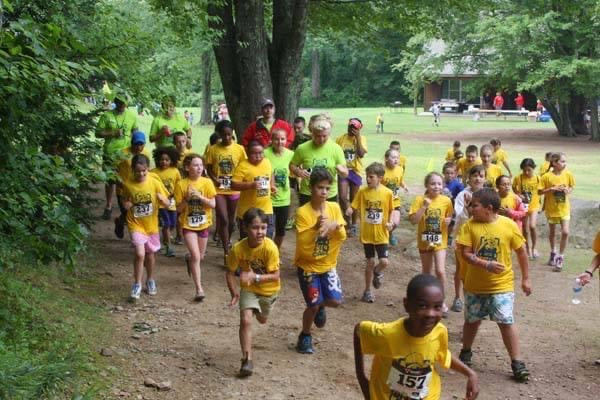
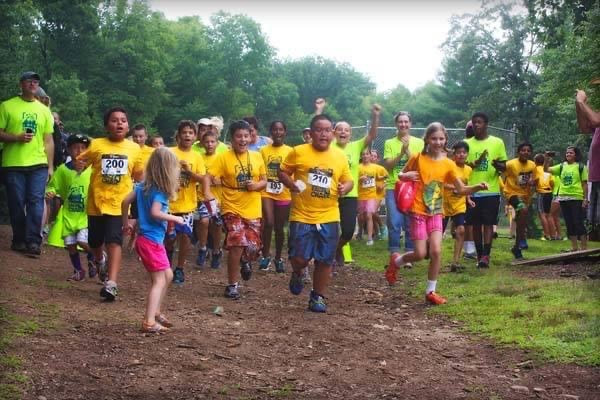
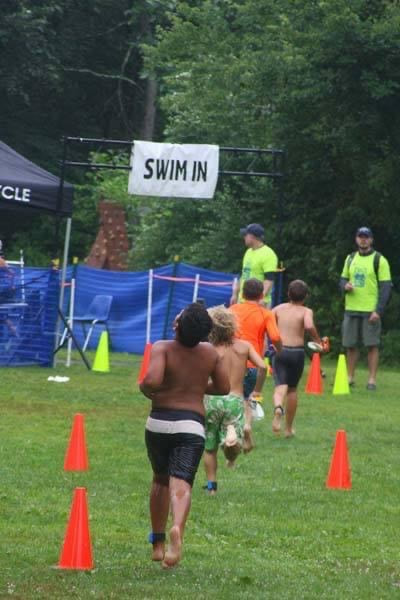
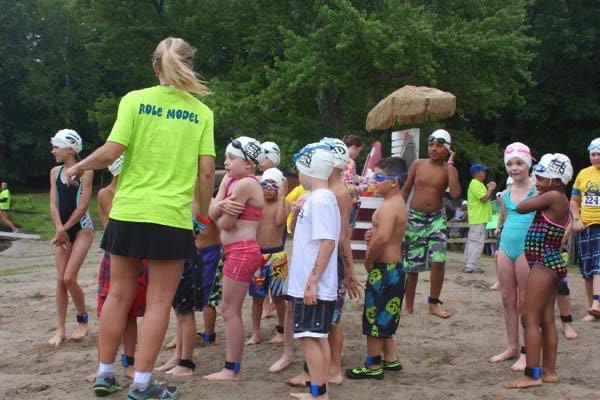
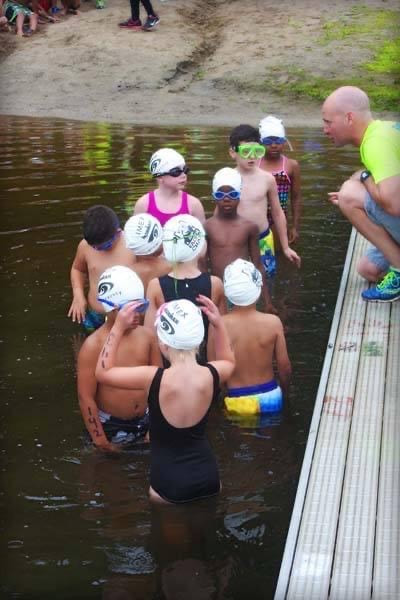
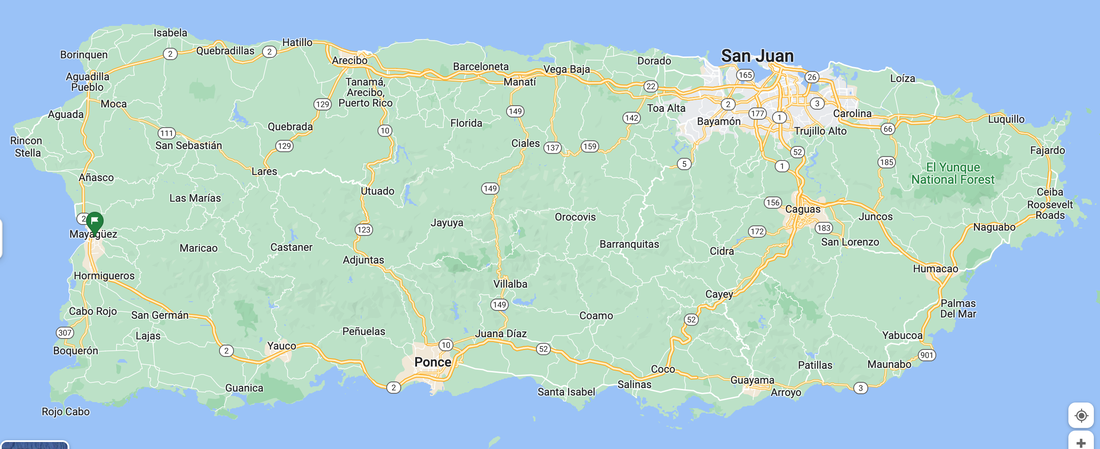
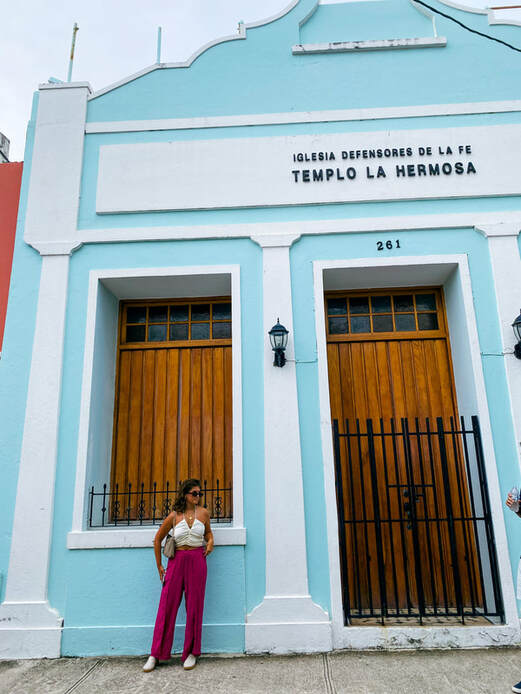
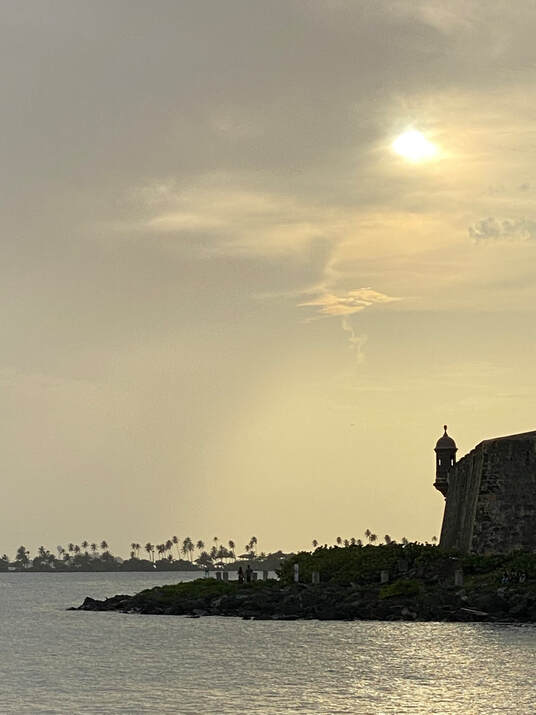
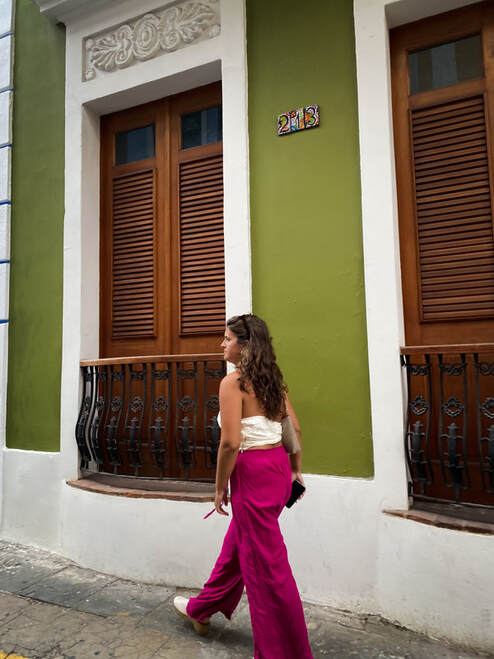
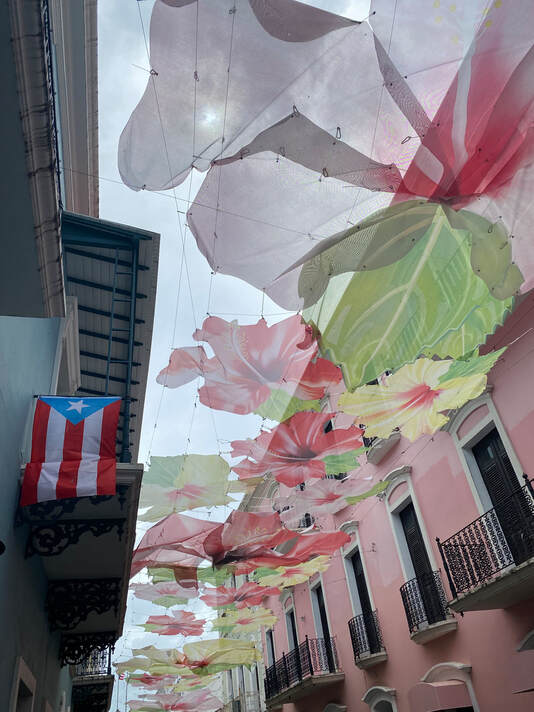
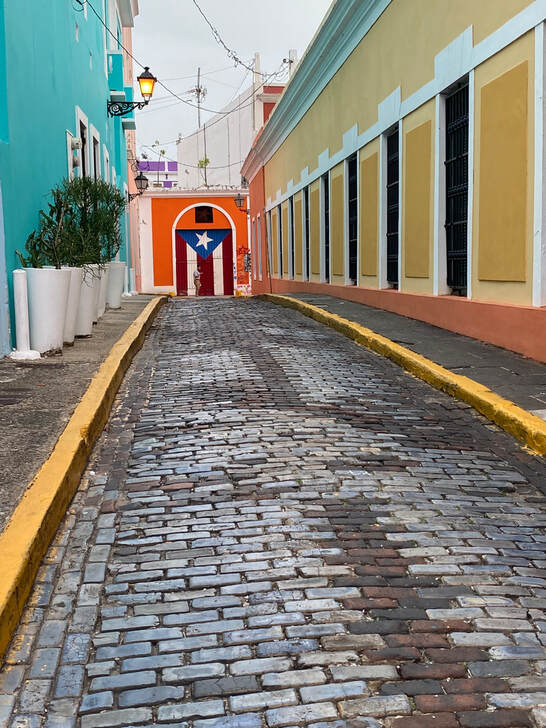
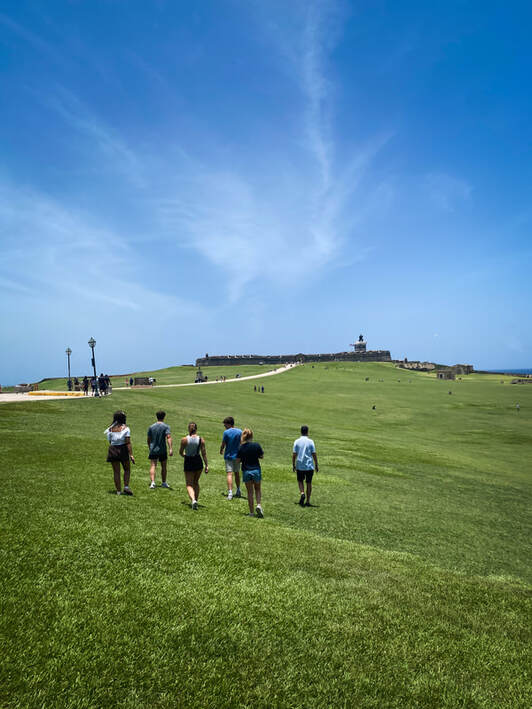
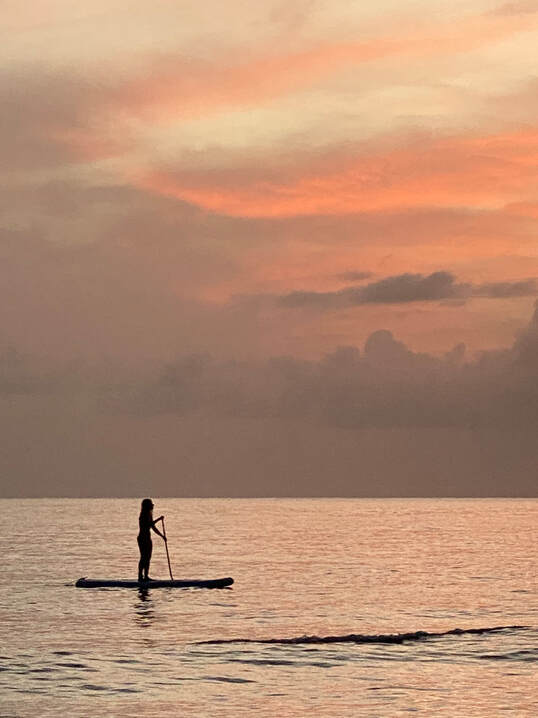
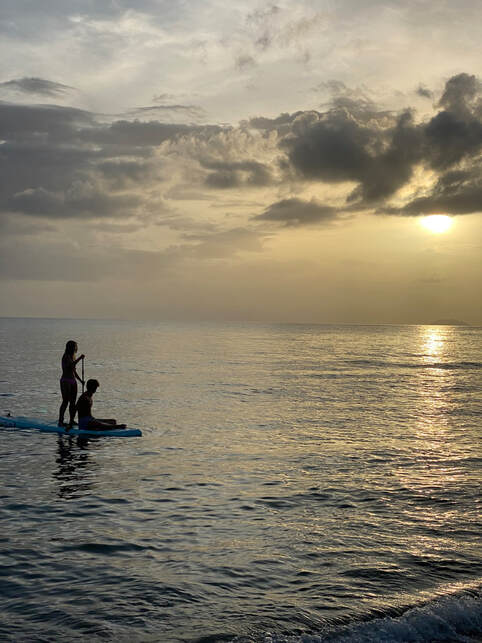
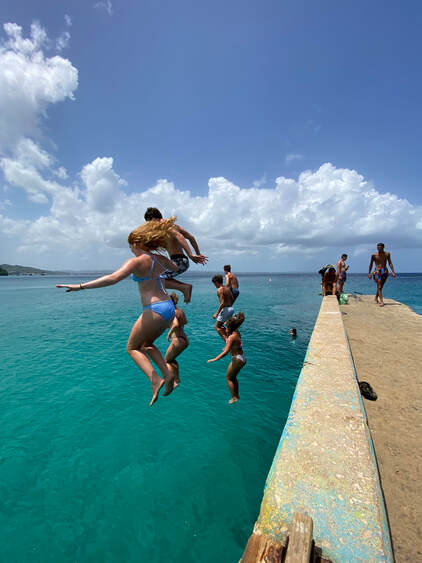
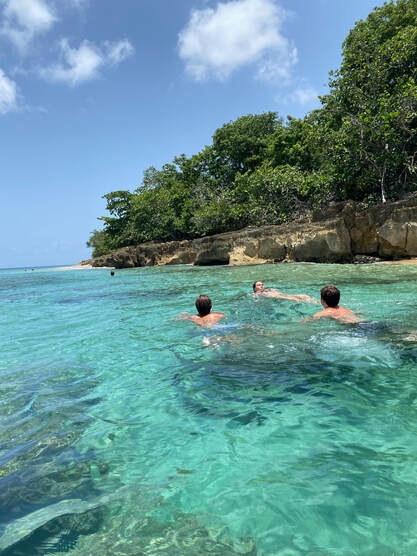
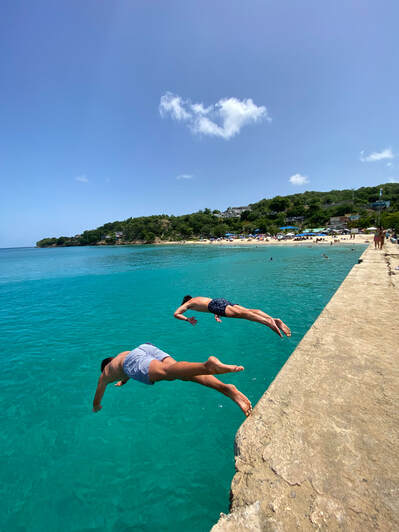
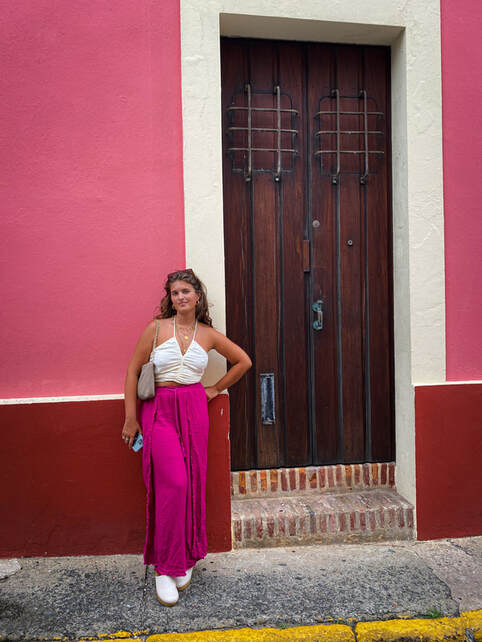
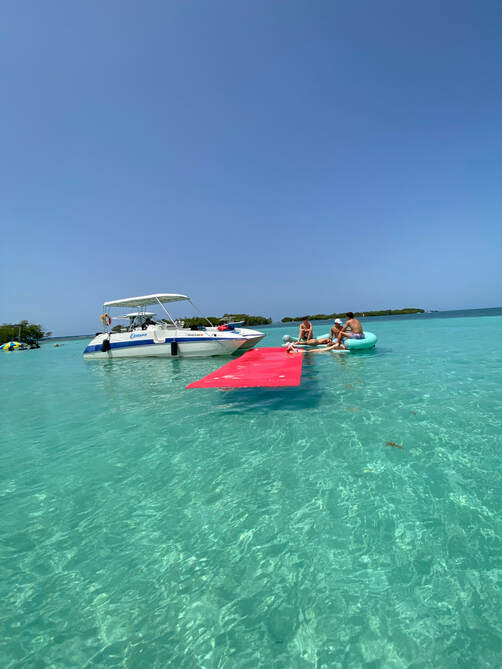
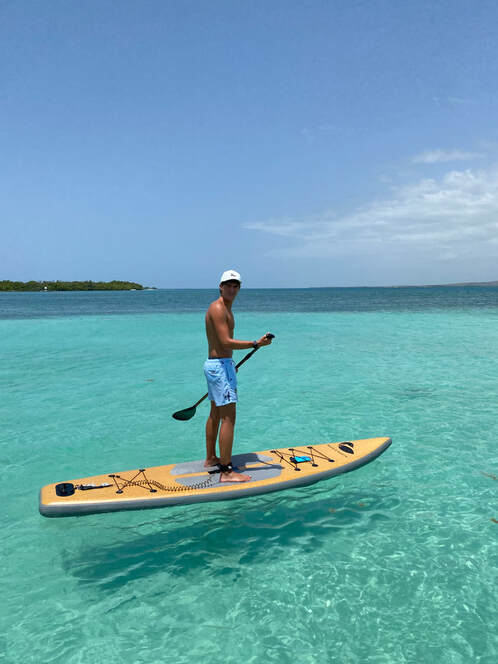
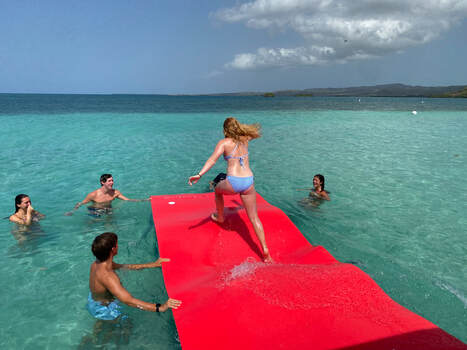
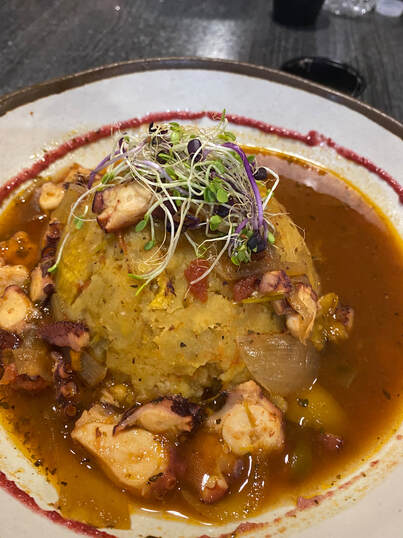
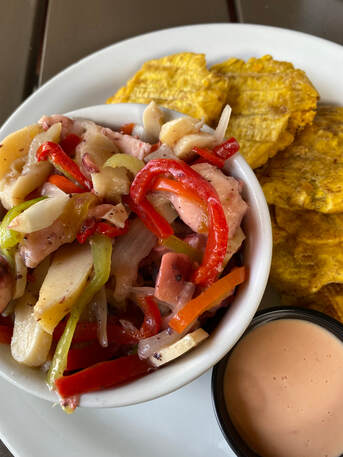
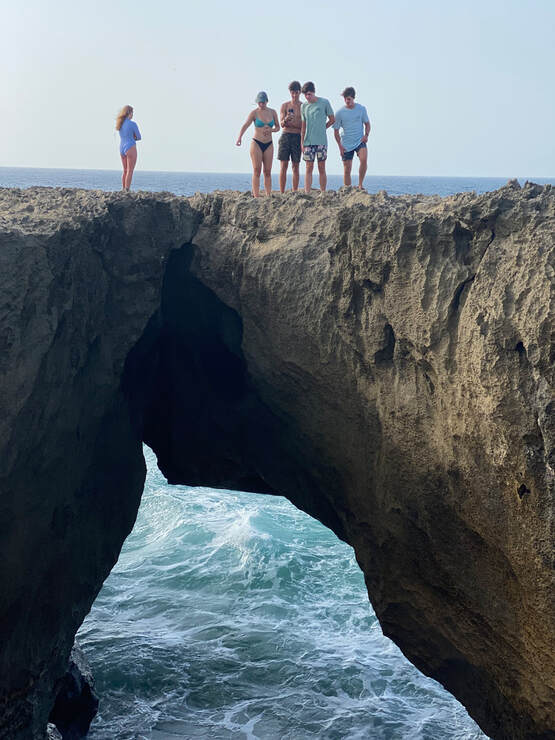
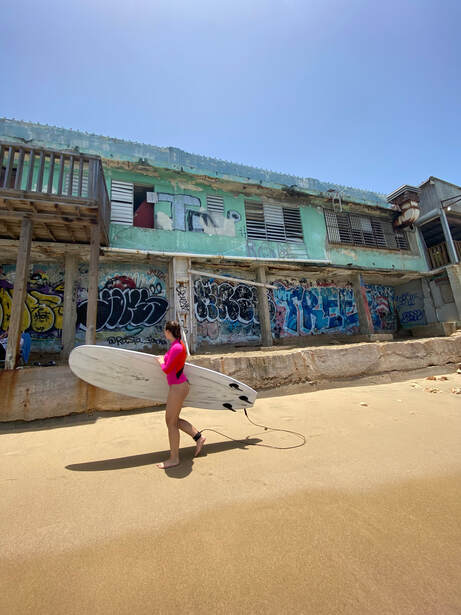
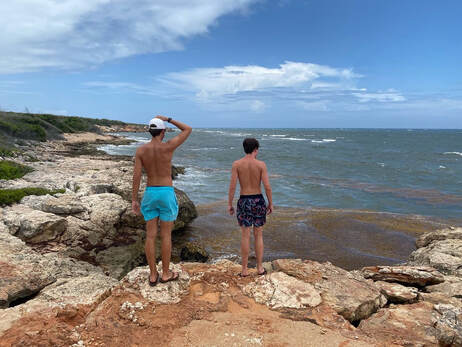
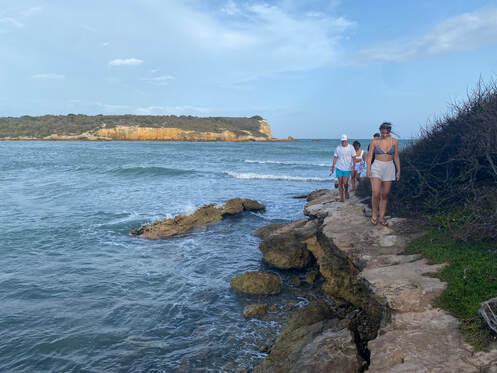
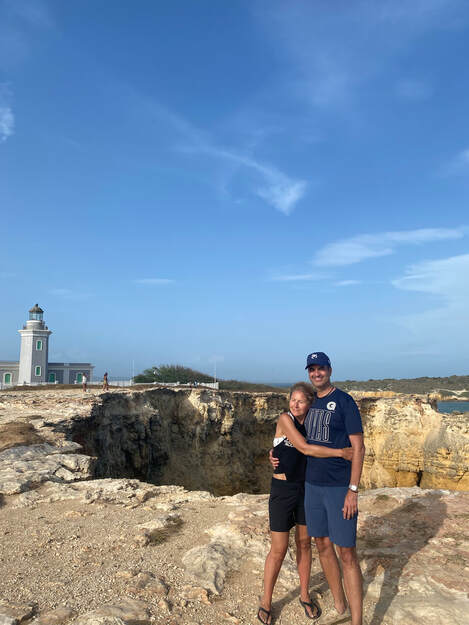
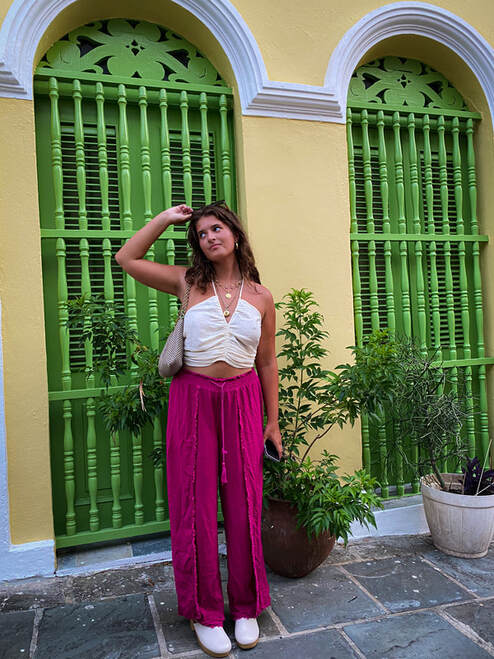
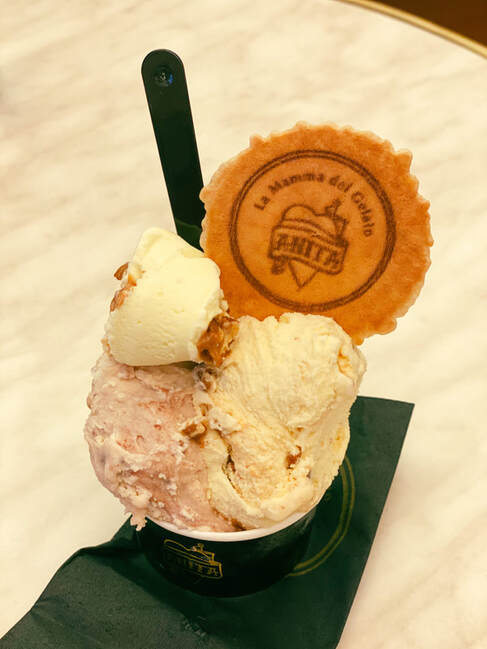
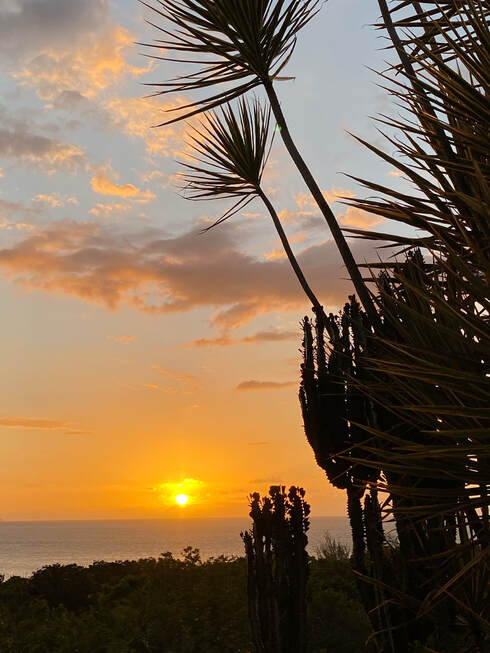
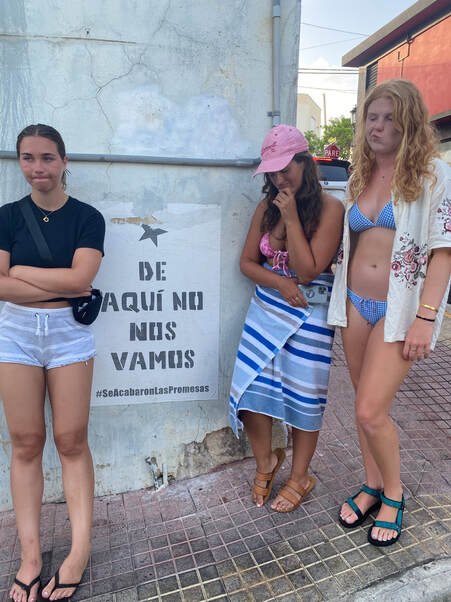
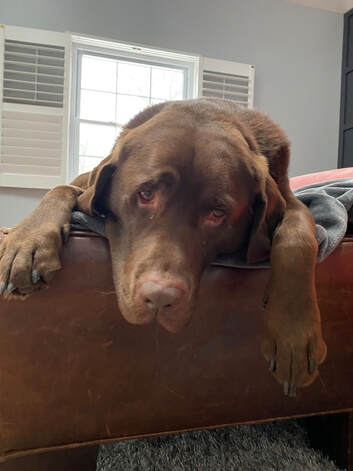
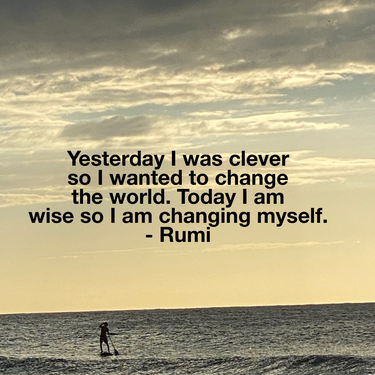
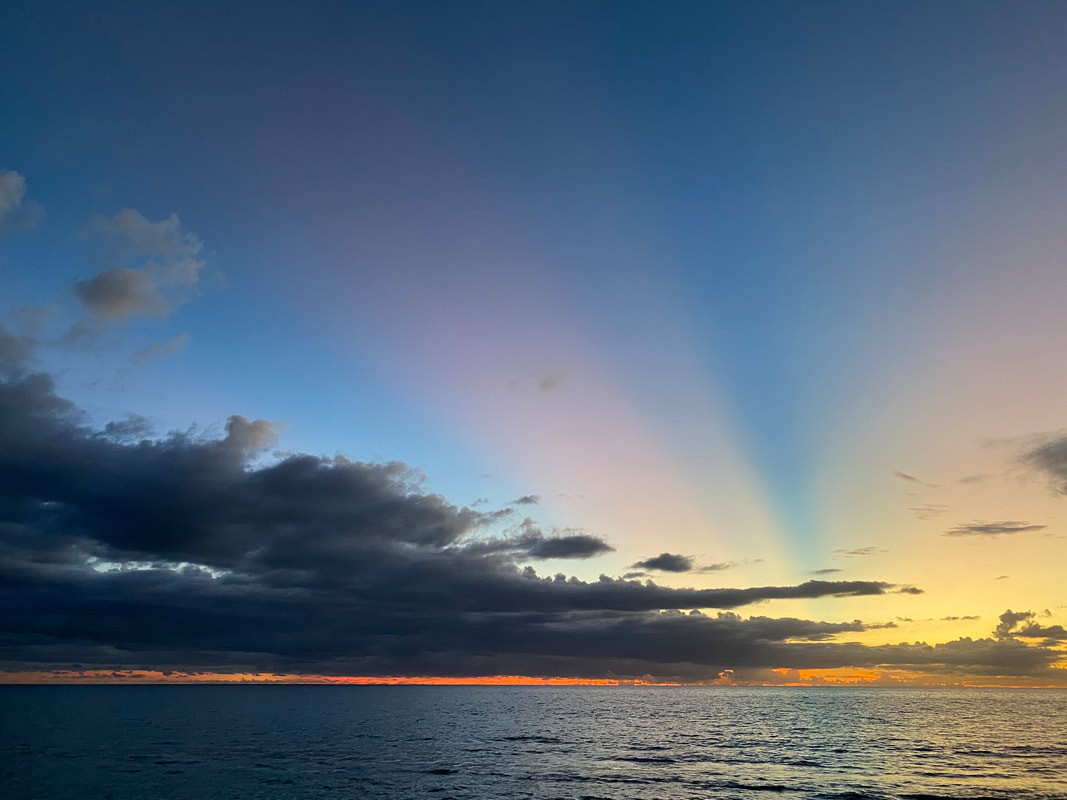
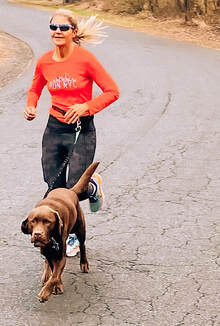
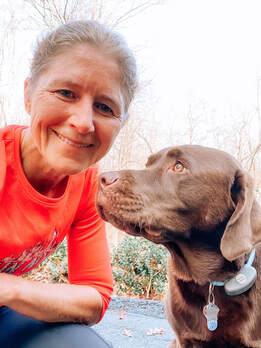
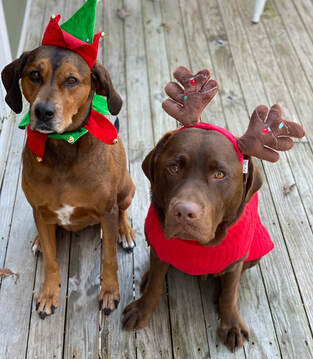
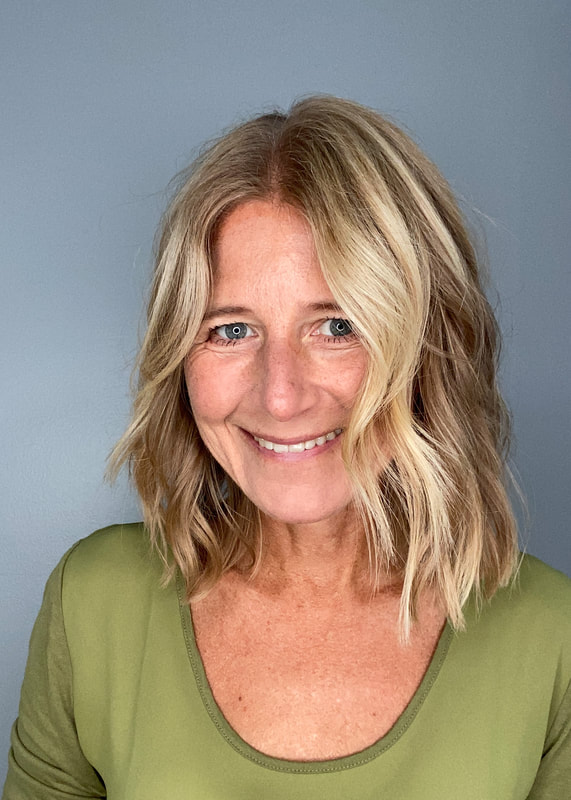
 RSS Feed
RSS Feed